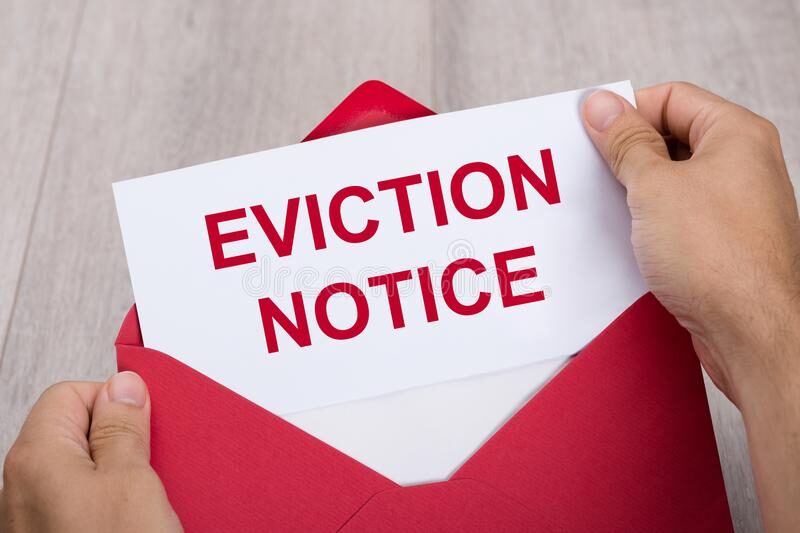Are you a landlord that needs to evict tenants from your property? In North Carolina, the law protects tenants from being suddenly and immediately kicked out of a residence by their landlord. Landlords have specific procedures to follow and time limits to abide by.
The first step that you, as a landlord, need to take is to provide an “Eviction Notice” to your tenant. There are multiple reasons to evict a tenant, and one of the most common reasons is unpaid rent. In any case, if the tenant breaching the lease agreement, you must demand whatever it is that the tenant has breached (unpaid rent, etc.) and allow 10 days for the tenant to comply. If you are evicting tenant for staying past the end of their lease (a “holdover” tenant), then you must give the tenant different types of notice depending on their specific lease agreement: if it was a monthly rent payment, then you must give a seven (7) day notice; if it was yearly payment of rent, then you must give a one (1) month notice, and if it was a mobile home lot rental, then you must give a thirty (30) day notice.
After the notice period has passed, then you must file a “summary ejectment” with the clerk of court at the courthouse located in that county. You, as the landlord, cannot take self-help measures to get the tenant out (changing locks, throwing property out, etc.). There will be a filing fee associated with this paperwork, as well as a service fee if you should have the Sheriff serve the paperwork. The Sheriff will serve the summons and paperwork on the tenant, and that paperwork should state when and where the eviction hearing will be, which should be seven (7) days or less from the issuance of the Summons by the clerk.
The eviction hearing will be in front of a magistrate judge, and each party will have an opportunity to have their story heard, put on evidence, and question witnesses. The magistrate judge will make a decision to evict the tenant, award damages, both or neither. The losing party has ten (10) days to appeal the judgment which would then go to district court to be heard in front of a judge. The parties will be required to attend an arbitration before it goes to district court.
If no party appeals and the magistrate judge ruled to evict the tenant, then the tenant must leave the premises within ten (10) days. If he does not, then the clerk can issue a “Writ of Possession” that the Sheriff will serve on the tenant. The tenant will have seven (7) days to remove their belongings, and if they do not, then the landlord can dispose of it as they wish.
If you have further questions about evicting your tenant, please refer to North Carolina General Statutes. If you should need an attorney’s assistance, please contact us at (828) 286-3332.


